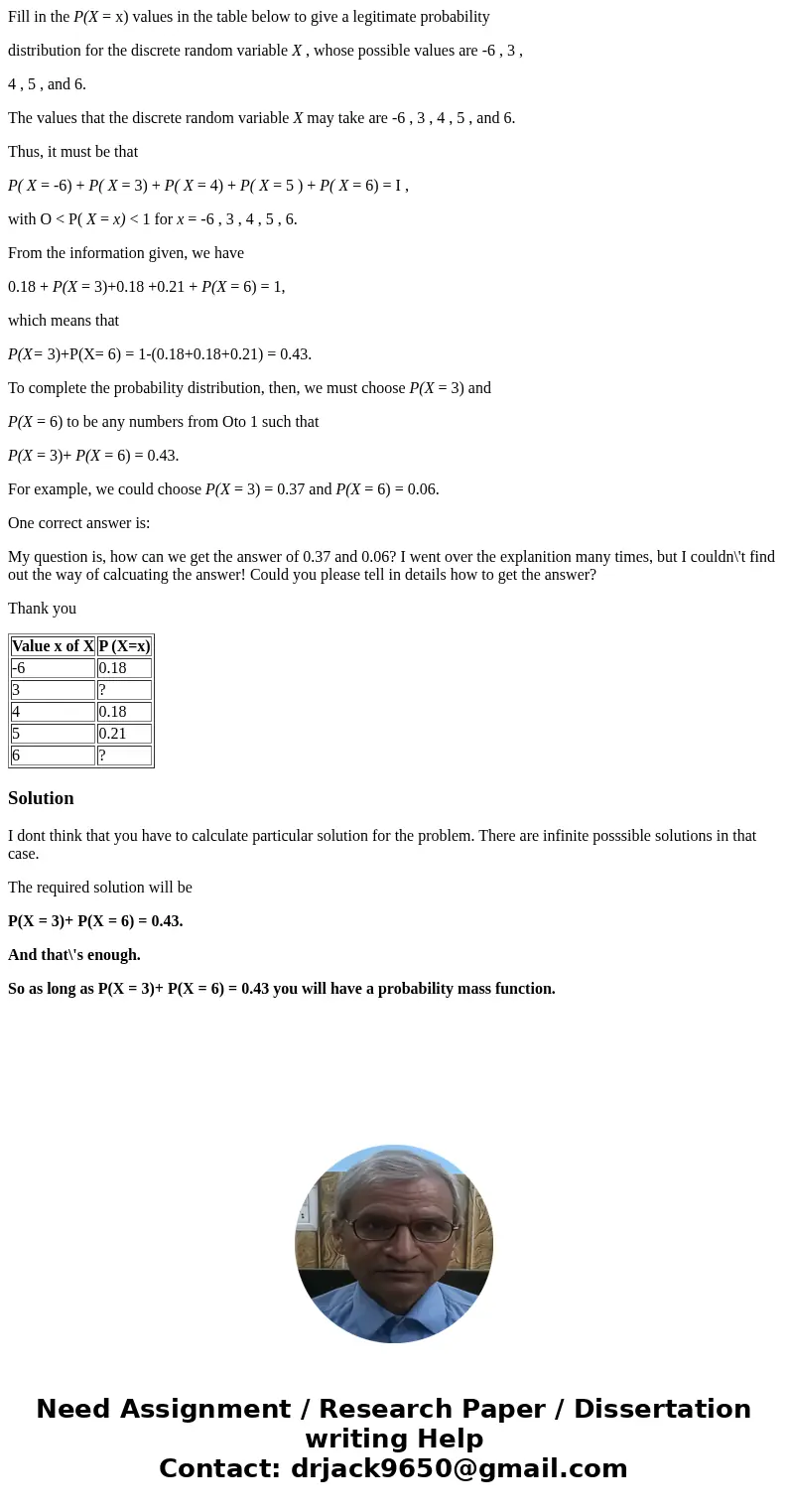Fill in the PX x values in the table below to give a legiti
Fill in the P(X = x) values in the table below to give a legitimate probability
distribution for the discrete random variable X , whose possible values are -6 , 3 ,
4 , 5 , and 6.
The values that the discrete random variable X may take are -6 , 3 , 4 , 5 , and 6.
Thus, it must be that
P( X = -6) + P( X = 3) + P( X = 4) + P( X = 5 ) + P( X = 6) = I ,
with O < P( X = x) < 1 for x = -6 , 3 , 4 , 5 , 6.
From the information given, we have
0.18 + P(X = 3)+0.18 +0.21 + P(X = 6) = 1,
which means that
P(X= 3)+P(X= 6) = 1-(0.18+0.18+0.21) = 0.43.
To complete the probability distribution, then, we must choose P(X = 3) and
P(X = 6) to be any numbers from Oto 1 such that
P(X = 3)+ P(X = 6) = 0.43.
For example, we could choose P(X = 3) = 0.37 and P(X = 6) = 0.06.
One correct answer is:
My question is, how can we get the answer of 0.37 and 0.06? I went over the explanition many times, but I couldn\'t find out the way of calcuating the answer! Could you please tell in details how to get the answer?
Thank you
| Value x of X | P (X=x) |
| -6 | 0.18 |
| 3 | ? |
| 4 | 0.18 |
| 5 | 0.21 |
| 6 | ? |
Solution
I dont think that you have to calculate particular solution for the problem. There are infinite posssible solutions in that case.
The required solution will be
P(X = 3)+ P(X = 6) = 0.43.
And that\'s enough.
So as long as P(X = 3)+ P(X = 6) = 0.43 you will have a probability mass function.

 Homework Sourse
Homework Sourse